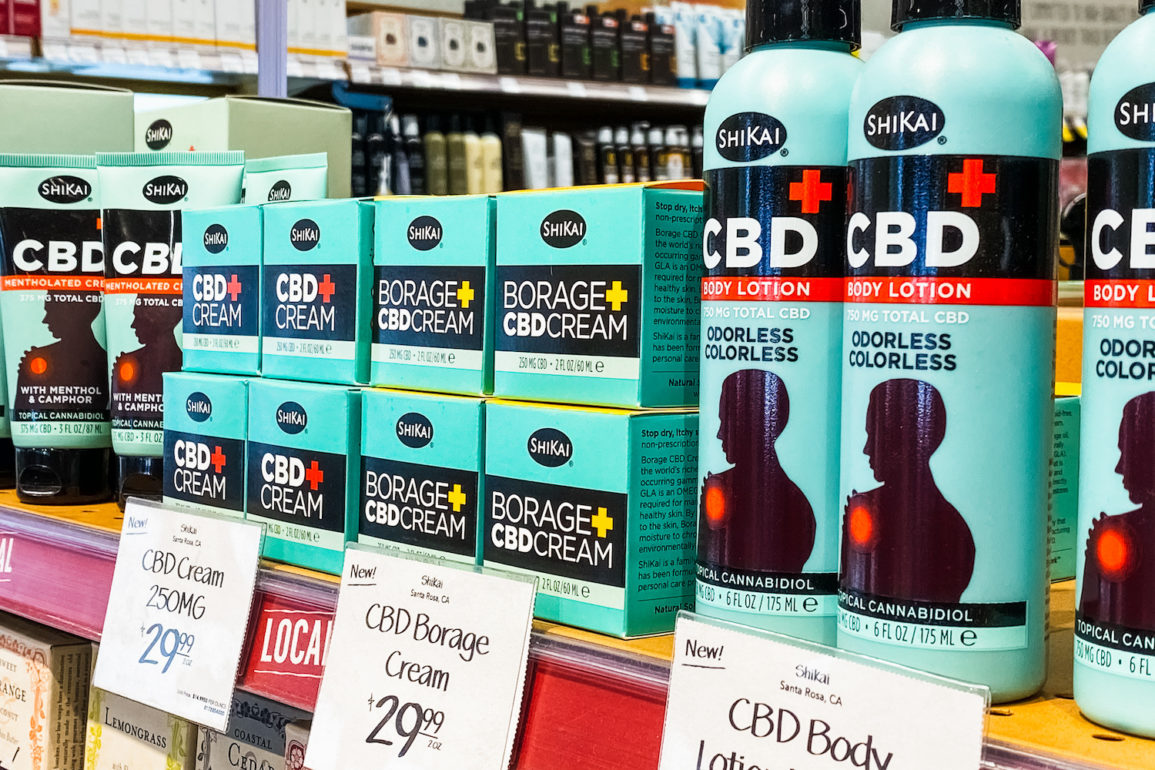- There’s no one way to detect shady CBD companies — it usually comes down to a combination of several shady things before determining the brand is, indeed, shady as hell (check out some examples below!)
- Five main things to consider when purchasing CBD products — credibility, safety, effectiveness, taste/flavor, and price
- Make sure you read through the entire checklist before purchasing CBD products, especially if you’re a newbie — some of the points aren’t quite as obvious as you might think
- The important things to remember are third-party testing, hemp source location, extraction method, and extract type
Searching for a new cannabidiol (CBD) company and don’t know where to look? Found a CBD product you like but aren’t sure if it’s good quality? Worried about spending your hard-earned cash on scam products? The CBD industry can be a scary place, especially if you’re a newbie, which is why we’ve created this comprehensive CBD purchasing guide.
The five things to consider when choosing a CBD company
1. Credibility
CBD company credibility is built through a strong customer following, excellent reviews, great customer service, fantastic products, and uncompromised business integrity. No “free trial” scams, no outlandish health claims, no cut corners, and certainly no products carrying harmful ingredients.
One of the best ways to gauge a CBD company’s credibility is through impartial online forums and message boards. Reddit is a perfect example. There are several subreddits dedicated to CBD, CBD companies, and CBD products.
The r/CBD subreddit is a goldmine. Lots of really useful resources for beginner and newbie CBD users. Simply head on over to the subreddit, find the “review” tag, and discover reviews properly vetted and verified by official moderators and experts.
Quick Tip
Don’t rely solely on customer testimonials on a company’s website. Many testimonials are placed there by “customers” who have been paid to write the review. Instead, rely solely on third-party review sites, message boards, and forums.
2. Safety
CBD companies adhering to robust safety practices should always exist in the CBD industry. Without a high level of safety, a company shouldn’t be selling CBD products. To be honest, no one wants to be consuming something hazardous or contaminated. Your health and overall wellness depend on it.
For you to know whether or not a CBD product is fit for consumption, you should be on the lookout for third-party lab testing and COAs.
3. Effectiveness
Let’s face it, you purchase CBD products for the effects and benefits, not for the hell of it. It’s, therefore, worth considering which product suits you best. Some products are better for anxiety and its associated symptoms, while others are designed for muscle pain, inflammation, and soreness.
CBD oils, for example, are generally effective for mild to moderate mental health issues. A 1,000-1,500 mg full-spectrum CBD oil product with additional anxiety-busting ingredients such as orange blossom or chamomile is ideal here.
Likewise, a CBD muscle-soothing balm or salve with menthol and peppermint added in is a perfect choice for muscle pain and inflammation, especially after a long day at work.
Quick Tip
If you’re a beginner, don’t buy the strongest CBD product you can find. Start low, go slow. Try a 500 mg full-spectrum CBD oil, topical, or edible to start with.
4. Taste and flavor
Everyone has different preferences when it comes to taste and flavor. We imagine some out there enjoy the sweeter, fruitier flavor of CBD gummies or candy, while others prefer the hempy taste of naturally-flavored CBD oils. No problem at all. Not all palettes are created equal.

However, what you certainly don’t want is a flavor you don’t like or different from what’s advertised on the website. Unfortunately, there’s no way to know a CBD product’s flavor without actually tasting it yourself. We recommend making sure you can return an opened product before you purchase. This way, you can exchange it for another flavor or get a refund.
Quick Tip
Naturally-flavored CBD products are exactly what they say on the tin. There are no additional flavorings. What you get is as close to the hemp plant as you can get, resulting in a bitter and weedy taste, which isn’t for everyone. Make sure to check through the product details carefully before purchase.
5. Price
The price of CBD products is confusing. We’re commonly taught lower prices equals lower quality. This isn’t always the case. There are many CBD companies out there selling CBD products at a lower price without skimping on quality. There are also CBD companies out there pricing products well into hundreds of dollars but lack the quality to back up the cost.
However, some CBD products can almost seem too good to be true. For example, if you see a 2,000 mg CBD oil for $20 or $0.01 per mg, it’s probably very low quality and the price is a reflection of this.
Likewise, if you see the same 2,000 mg CBD oil for $400 or $0.20 per mg, it’s way overpriced and likely not a trustworthy brand.
The checklist for purchasing CBD products (and why each of them matters)
1. Third-party testing: The ultimate CBD product magnifying glass
A Certificate of Analysis (COAs) is arguably the most important thing to look out for when purchasing CBD products. COAs are produced by accredited, third-party laboratories specializing in hemp and cannabis testing. They give you a detailed insight into the products you purchase e.g. cannabinoid profile, terpene profile, and the presence of contaminants (mycotoxins, heavy metals, residual solvents). CBD companies typically post COAs on their website for your reference. They can usually be found on the product page or a dedicated “COA/Test Results” page.
If your chosen CBD company hasn’t posted COAs, don’t immediately think the products are a scam. We recommend contacting the company’s customer service team and requesting the specific COA for the product(s) you want to purchase. All legitimate CBD companies will be happy to oblige.
What you find on a COA
- Cannabinoid Profile — The number and percentage of cannabinoids present in the product. Common cannabinoids include CBD, THC, cannabinol (CBN), and cannabigerol (CBG).
- Terpene Profile — The number and percentage of terpenes in the product. Common terpenes include caryophyllene, limonene, and pinene.
- Mycotoxin Testing — Shows the presence of any naturally occurring mycotoxins such as mold, fungi, and other bacteria.
- Residual Solvent Testing — Shows the presence of any residual solvents and/or organic volatile compounds.
- Heavy Metals Testing — Shows the presence of any heavy metals such as lead, mercury, arsenic, and cadmium.
Credible cannabis and CBD testing laboratories
Here are some of the most reputable and trusted cannabis testing labs. If you find a CBD brand that uses these labs to test its products, you can feel safe knowing the lab results are likely accurate and not falsified.
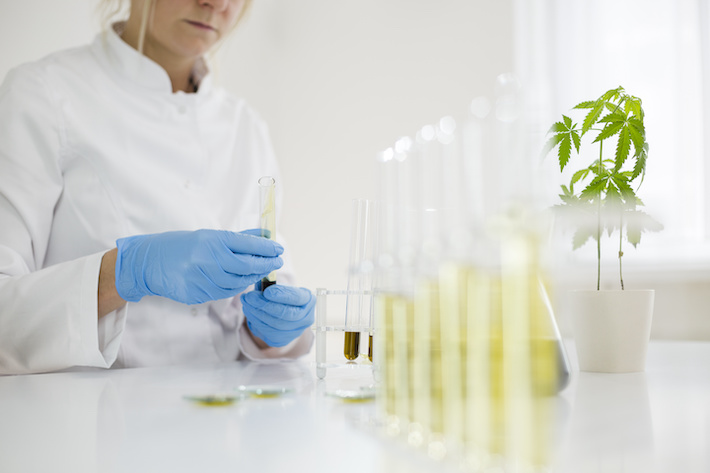
2. Correct labeling: Making sure you’re choosing the right product
When you’re purchasing your CBD product, take a very close look at the label. Do you see the company name, container volume (mL), CBD content (mg or %), extract type, and ingredients? If so, that’s a good sign. Each of these indicates the product is as it should be, at least from the outside.
If some (or none) of this labeling text appears on the CBD product, especially the CBD content and ingredients list, you have a problem.
What if you don’t see the amount of CBD written on the label?
If you don’t see the quantity of CBD written on the label, you might be looking at a “hempseed” product and not a hemp-derived CBD product.
Hempseed products are made from the seeds of hemp. They carry no Cannabidiol (CBD), have very few therapeutic benefits, and won’t help alleviate your ailments. Hempseed products are good for skincare or as a cooking ingredient but not for pain or anxiety.
What if you don’t see an ingredients list written on the label?
By law, CBD products require an ingredients list with allergens highlighted in bold. If you don’t see the list of ingredients on the CBD product label, we recommend you stay away from it.
4. Extract type: Experiencing the best of the hemp plant
There are three hemp CBD extract types for you to choose from:
- Full-spectrum — Contains a full range of cannabinoids, terpenes, flavonoids, and other plant compounds including THC.
- Broad-spectrum — Contains a broad range of cannabinoids, terpenes, flavonoids, and other plant compounds minus THC.
- Isolate — Only contains CBD.
While broad-spectrum and isolates serve their purpose, full-spectrum extracts are arguably the superior choice. Why? Because you get to experience the full range of cannabinoids, terpenes, and other beneficial plant compounds including THC.
When you use or consume CBD products carrying full-spectrum extracts, a physiological phenomenon called the entourage effect is thought to occur inside your body. Put simply, the entourage effect is the synergy between certain cannabinoids and terpenes. Scientists believe this synergy provides you with enhanced benefits, though this is still being debated.
5. Extraction method: CO2 and whole plant extraction preferred
The extraction method refers to how CBD producers extract plant compounds from the hemp plant.
There are several different extraction methods, but carbon dioxide (CO2) is the preferred choice among many CBD companies and users. Why is it the preferred choice? Because it’s safe, solventless, environmentally friendly, and retains a high percentage of beneficial aromatic terpenes.
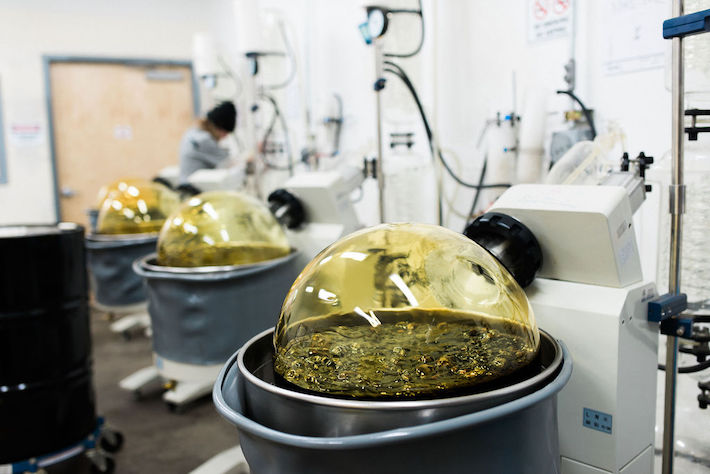
Want to go one better? We recommend companies that use whole plant CO2 extraction. What does this mean? Whole plant is what it says on the tin. Manufacturers utilize the whole hemp plant, as opposed to just the flower, resulting in a powerful and therapeutic plant compound-rich extract.
6. White-label vs private label vs in-house
It’s rare for CBD brands to own and operate their facilities ready to create the perfect CBD products. The costs are way too high and the investment can reach millions of dollars. Instead, brands source their products from third-party white-label or private label manufacturers. One is ultimately better than the other but at a cost.
White-label CBD products are mass-produced and aren’t customizable. The brand simply puts its name on the label and that’s it. They have no say in the ingredients used or what the overall packaging looks like. On the other hand, private label CBD products are also mass-produced, but brands can customize the packaging and ingredients used.
When choosing a CBD company, it’s difficult to know whether or not it uses white label or private label manufacturers.
7. Member of any hemp or CBD organizations?
Due to a lack of federal regulations surrounding hemp and hemp-derived CBD, third-party organizations have stepped in to legitimize the industry via correspondence with federal agencies, advancing scientific research, providing education, and ensuring some level of independent regulatory oversight.
Common hemp and CBD organizations CBD companies join
When choosing a CBD company, it’s worth considering whether it’s a member of any of these hemp and CBD organizations. Membership shows commitment and dedication to safety, transparency, and integrity within the cannabis and CBD industries.
Organization membership or certification logos to look out for
| Organization | Logo |
|---|---|
| US Hemp Authority | |
| Hemp Industries Association | |
| National Hemp Association |
CBD companies belonging to hemp and CBD organizations
- Medterra
- Elixinol
- Recess
- Pet Releaf
8. Certifications
Want to make sure your chosen CBD products are 100% vegan, gluten-free, cruelty-free, organic, and manufactured in above-board facilities? Official certifications from accredited, professional organizations or agencies are what you should be looking for. They show a dedication to good business practices, consumer safety, transparency, and a willingness to improve the hemp, CBD, and cannabis industry landscape.
Examples of official certification stamps (seals)
| Certification | Symbol |
|---|---|
| USDA Organic | |
| GMP | |
| B Corp | |
| Vegan | |
| Cruelty-Free | |
| Gluten-Free | |
| Non-GMO | |
| Kosher |
9. Where the hemp comes from (not all locations are as good as others!)
When purchasing CBD products, knowing where a CBD company sources its hemp is important. Some locations are much better than others due to stricter hemp cultivation guidelines, better climate, healthier soil, and more experienced farmers. We almost always recommend domestic US hemp over internationally imported hemp. Why? Because not every country currently cultivating hemp for CBD products follows the same strict rules and regulations as the US. In other words, the same standard of quality cannot be guaranteed.
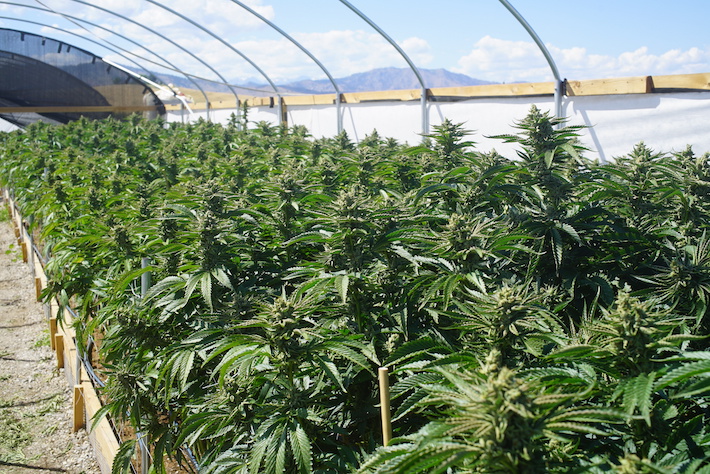
Some US hemp source locations are better than others
While most US states are famed for high-quality hemp growing and cultivation, some are better than others. California, Oregon, and Kentucky are examples of fantastic hemp source locations with long-standing hemp pilot programs — some starting way back in 2014.
A CBD company growing its own hemp is ideal
Not all CBD companies have the privilege of owning and running their hemp farms but the ones that do are at an advantage. They’re able to control every aspect of the hemp and CBD cultivation, manufacturing, and production process, guaranteeing excellent quality from seed to sale.
10. A better way to work out the price of your CBD product
For the most part, purchasing decent, high-quality CBD isn’t outrageously cheap nor is it expensive. There are some reasonably priced CBD products out there, particularly when you work out the cost per mg of CBD. For example, a decent 1,800 mg CBD oil might cost you $120 per bottle. This seems expensive, right? Well, it’s not too bad when you add up the per mg of CBD cost, which comes to around $0.07.
As a general rule, we consider $0.05 to $0.10 per mg of CBD as reasonable for a decent broad or full-spectrum CBD oil or CBD gummies product. CBD topicals typically cost a little more on average, simply because of the manufacturing process and the additional ingredients included in the formula. Expect to pay somewhere in the region of $0.10-$0.40 per mg of CBD.
How to work out the cost per mg of CBD
Working out the per mg cost of your chosen CBD product is easy. All you have to do is follow this simple formula:
Total Price ($) / Total mg of CBD = Price Per mg ($)
Example: $100 (Total Price) / 1000 mg (Total mg of CBD) = $0.10 (Price Per mg)
11. FDA Warning Letters
The US Food and Drug Administration (FDA) issues warning letters and Notice of Violation letters to CBD producers, manufacturers, retailers, and brands if found in violation of the Federal Food, Drug, and Cosmetic Act (FD&C). The FD&C makes it clear no CBD company or business can make health claims or sell its products as dietary supplements.
For example, if a CBD brand sells unapproved products claiming to provide customers with therapeutic health benefits, a warning letter will be issued. These companies might get hit with substantial fines depending on how severe the violation is.
An FDA violation isn’t a good look and can damage a CBD company’s reputation. While not all FDA violations mean a company is fraudulent, unsafe, or shady, it’s something to consider.
You can find a comprehensive list of CBD companies that have received FDA warning letters here.
12. Website
Your first impression of a CBD company is its website. All legitimate CBD companies have sleek, easy-to-navigate sites with well-written educational blog posts, legal disclaimers, certification stamps, contact details, and other useful info.
What about shady CBD companies? While they can be very good at hiding their flaws, there are several tell-tale signs you can recognize. Some are quite subtle, while others are a little more obvious.
- Initial gut feeling — Is your gut telling you something isn’t right? Listen to it. Nine times out of ten, it’s probably telling you to stay away.
- No contact info or company address — All legit CBD companies publish their contact info and company address. If none of this is provided, be careful.
- Lack of product information — Product info isn’t something credible CBD companies leave out. If there’s no product info on the page, the company is most likely hiding something or it’s a scam. Always look out for product descriptions, cannabinoid content, potency choices, and anything else you commonly find on a product page.
- “Free trials” — Free trials are never “free”. Scam companies set free trials up for you to enter your details, order the product, and just pay the shipping cost. However, what you’re doing is subscribing to a hidden monthly fee that’s almost impossible to unsubscribe from. The monthly fee can range from $30-$120 per month.
- Over-the-top health claims — Under US law, CBD brands are not allowed to make any health claims. The FDA will send warning letters and hand out substantial fines. If you see any company say its products can cure anxiety, depression, pain, or any other health problem, it’s probably a scam.
- No social media presence — Social media is essential to CBD brands. If your chosen CBD brand or company has no social media presence, warning bells should be ringing.
How to detect shady CBD companies
There are hundreds, if not thousands of CBD companies out there. Some are great. Others are not so great. Many CBD companies are downright shady and unscrupulous, simply because the CBD industry remains unregulated and they somehow get away with it.
Identifying awful CBD companies can be challenging. There’s so much you need to look out for. What makes it worse is research shows many CBD products are incorrectly labeled, carry more than the legal limit of THC, or contain no CBD at all.
Scared about purchasing CBD products now? Don’t be. Here are some examples of low quality cannabis, marijuana, and CBD companies to give you an idea of what you should avoid.
- Brizo Pure — No Certificates of Analysis (COAs), no CBD content listed, most likely a multilevel marketing (MLM) scam
- Bionic Bliss CBD — No COAs, no hemp source info, questionable website literature, borderline health claims, no contact info, fake “free trial” offer, clearly a scam company
- Mountain Peak CBD — Similar website as the company above, no COAs, dreadful website literature, scammy “free trial” nonsense
These are but a few fake, scammy, and misleading CBD companies. There are so many others out there ripping people off with awful products. Some will even pose as legitimate companies but end up stealing your credit card details instead. Not ideal.
Buying CBD in the US
Despite CBD being federally legal under the Agriculture Improvement Act (2018 Farm Bill), not all US states are as CBD-friendly as others. Why? Because some US states overrule federal law and place certain restrictions on hemp and hemp-derived CBD products.
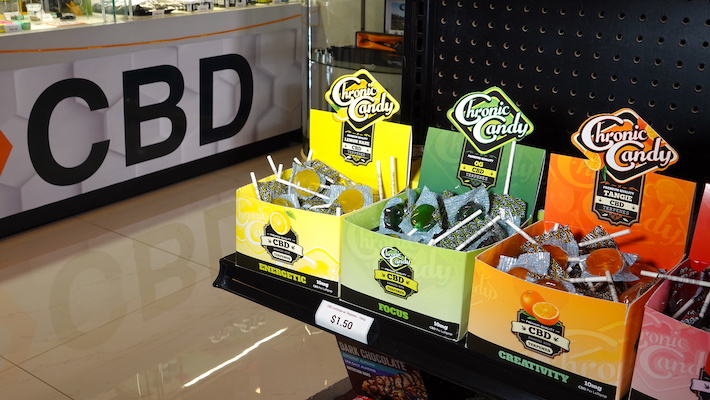
Is CBD legal to purchase in California?
Yes. The purchase, possession, and use of hemp-derived and marijuana-derived CBD products is legal in California under state law. You can purchase hemp-derived CBD online and through dedicated CBD dispensaries. You can also buy marijuana-derived CBD products through licensed cannabis dispensaries located all throughout the state.
Is CBD legal to purchase in Colorado?
Yes. Like California, the purchase, possession, and use of hemp-derived and marijuana-derived CBD is legal under Colorado state law. You can legally purchase hemp-derived CBD products online and through dedicated CBD dispensaries, head shops, and vape shops. You can also buy marijuana-derived CBD products from licensed cannabis dispensaries.
Is CBD legal to purchase in Texas?
Yes. The purchase, possession, and use of CBD derived from hemp is perfectly legal in Texas under state law. You can purchase hemp-derived CBD products online and through retail stores, head shops, and vape stores. However, unlike California and Colorado, marijuana is not legal in Texas, meaning the purchase, possession, and use of marijuana-derived CBD products is not legal in the state.
Is CBD legal to purchase in Florida?
Yes. CBD is legal in Florida. The purchase, possession, and use of hemp-derived CBD products is permitted under Florida state law. However, the purchase, possession, and use of marijuana-derived products is not permitted in the state unless you have a qualifying medical condition.
Is CBD legal to purchase in Idaho?
Hemp-derived CBD and CBD products are legal to use, sell, and possess in Idaho but under stricter regulatory oversight than other US states such as California, Oregon, and Colorado. You cannot purchase CBD products carrying THC, meaning CBD isolate and broad-spectrum products are your only options.
Closing thoughts: You deserve better than mediocre CBD
Due to the unregulated nature of both the cannabis and CBD industries, there are many shady companies out there selling borderline criminal products. You deserve better than that, which is why we created this guide in the first place.
We recommend following the steps outlined above closely before you make any purchase. Start with customer reviews on Reddit and other third-party forums, message boards, or social media sites. There you can gauge customer satisfaction and opinion, positive or negative.
If you’re positive and you want to go with that particular brand, don’t just click the buy button. Make sure the products are third-party tested, made with USA-grown hemp, and extracted using CO2 or whole plant extraction methods.

